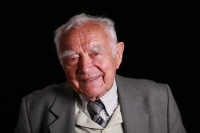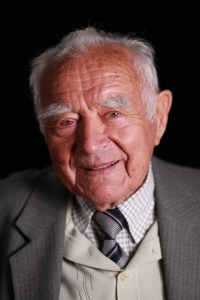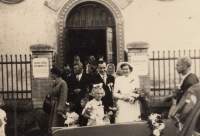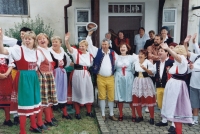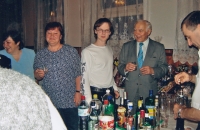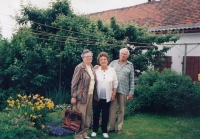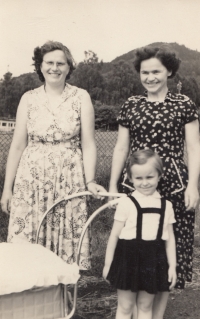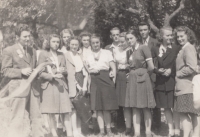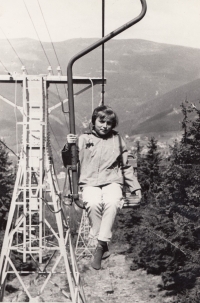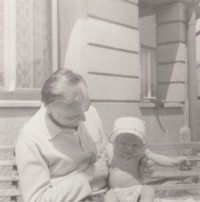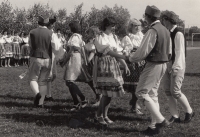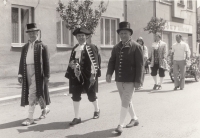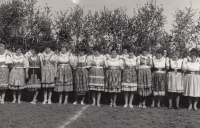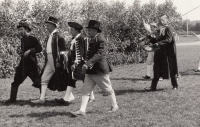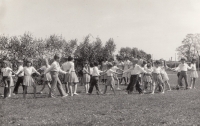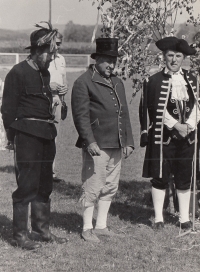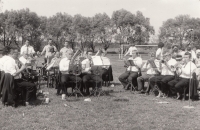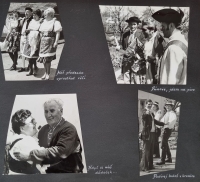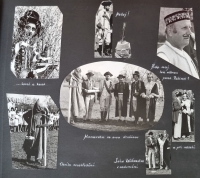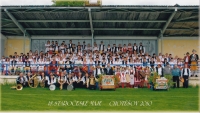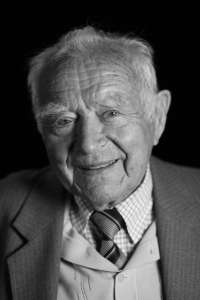When I saw the misery among the people, I was not surprised that there was a coup in February

Download image
Václav Kohout was born to Růžena Kydlíčková and Matěj Kohout on 30 December 1925 in Skašov near Pilsen. He was born into an agricultural and Catholic family but later became an Evangelical due to the influence of his aunt, Božena Vitáková, and the prominent figures of the Evangelical Church he met over time. In Skašov, he completed two years of elementary school, after which he was apprenticed as a men’s tailor in Pilsen in 1943. In Nepomuk, he then graduated from a three-year town school, and in the village of Prádlo in the Nepomuk region, he experienced liberation by American soldiers. During his time in Pilsen, he attended both the Eastern and Western congregations of the Evangelical Church of Czech Brethren. Both he and his parents joined the Communist Party, and his father was a functionary of the Unified Agricultural Cooperative (JZD). He said they were not active members and that he joined the party because of his friends. After his apprenticeship, he graduated from the industrial school in Prostějov. He worked as a tailor’s foreman in Pragoděv and during the 1950s, spent some time working in the mines in Orlová. Then, he was employed as a teacher of practical subjects at the apprenticeship centre in Cvikov. In 1955, he married Anežka Míková in the Evangelical church in Přeštice. His next job was in a clothing manufacturing cooperative in Dobřany, then in Pilsen. He then worked in an apprenticeship school in Stod and then in Pilsen until his retirement. He has a share in organizing Old Bohemian May Days in Chotěšov, where he moved with his wife. During his lifetime, he met several prominent Evangelical personalities, such as Ebenezer Otter, Miloš Bič and Petr Adolf. At the time of filming (2023), he lived in Chotěšov.
